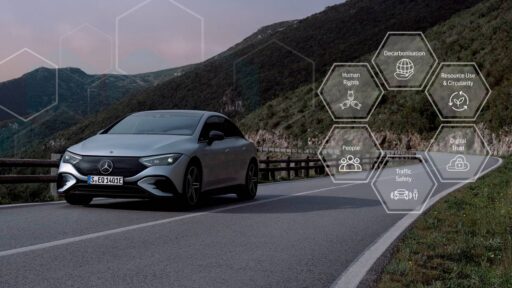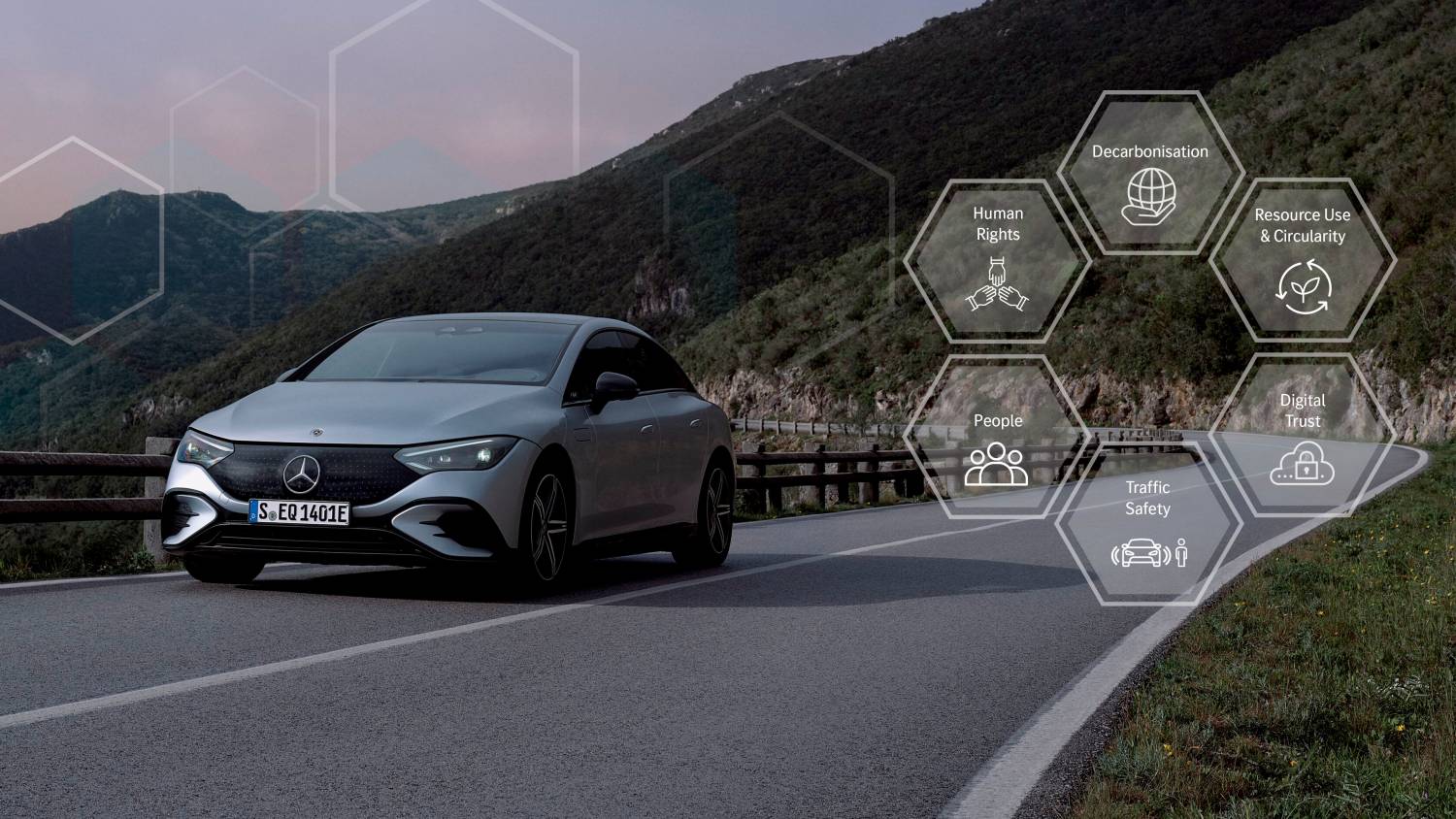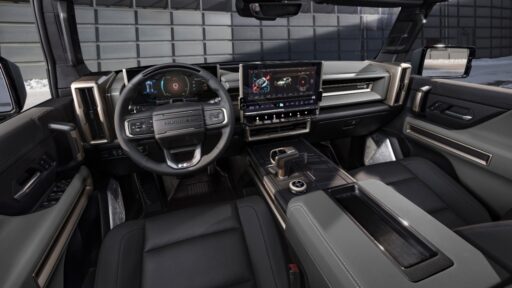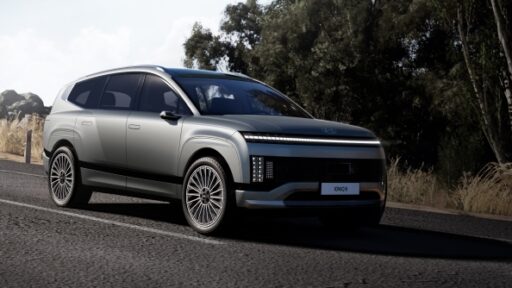Mercedes-Benz has reaffirmed its commitment to sustainability by outlining six strategic focus areas during the 17th Mercedes-Benz Sustainability Dialogue in Stuttgart.
These pillars, designed to embed ecological, social, and corporate governance principles into the company’s operations, reflect a holistic approach to creating long-term value for all stakeholders.
READ MORE: ‘Expressions of Texture’: A Stunning Showcase of Mulliner’s Bespoke Craftsmanship

Six Strategic Sustainability Focus Areas
1. Decarbonisation:
Mercedes-Benz aims for its new vehicle fleet to be CO₂-neutral across the entire value chain by 2039 under its “Ambition 2039” initiative. Key strategies include the electrification of vehicles, the use of renewable energy in production, and innovative recycling methods, such as recovering 96% of battery materials like lithium, nickel, and cobalt at its Kuppenheim battery recycling plant.
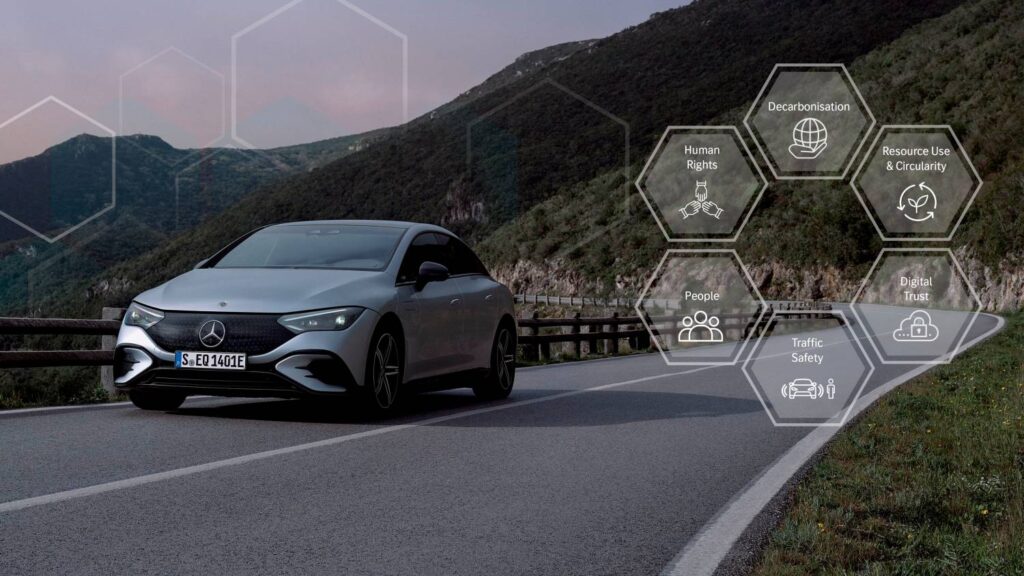
2. Resource Use & Circularity:
The company is focused on decoupling resource consumption from growth by increasing material efficiency and closing the material cycle. Efforts include reducing waste and energy use at production sites and recycling valuable raw materials for future use in all-electric vehicles.
3. Employees:
Through its Sustainable People Plan, Mercedes-Benz is investing €2 billion between 2022 and 2030 to equip employees with the skills needed for the transformation to electrification and digitalisation. This includes adapting job roles, fostering teamwork, and ensuring socially responsible changes.
4. Human Rights:
Mercedes-Benz takes a risk-based approach to protecting human rights across its supply chain. This includes initiatives like the Corridor Initiative in Brazil’s Amazon region, which supports local communities, strengthens human rights, and enhances biodiversity.
5. Digital Trust:
Mercedes-Benz prioritises responsible use of digital technologies, including artificial intelligence, to build trust in its products and services. As a pioneer among automakers, it has established principles for ethical AI usage, ensuring digital transformation aligns with sustainable and ethical practices.
6. Traffic Safety:
The company supports the EU’s Vision Zero initiative, aiming to halve road fatalities by 2030 and eliminate them by 2050. Innovations like DRIVE PILOT, an SAE Level 3 automated driving system, are central to enhancing traffic safety. The latest version of DRIVE PILOT is expected to be certified in Germany by the end of 2024.
Collaborative and Transparent Approach
These focus areas are the result of extensive analysis and consultation with internal and external stakeholders, adhering to the Corporate Sustainability Reporting Directive (CSRD) and European Sustainability Reporting Standards (ESRS). A company-wide scorecard tracks progress and ensures sustainability remains integral to operations.
Sustainability Dialogue and Coordination
The annual Mercedes-Benz Sustainability Dialogue serves as a platform for open discussion with NGOs, academics, policymakers, and business leaders. To manage the growing complexity of sustainability initiatives, the company has established a cross-divisional coordination function within its Integrity, Governance & Sustainability division, with departments maintaining responsibility for specific topics.
For more details, visit the Mercedes-Benz sustainability section: Mercedes-Benz Sustainability.
READ MORE: BMW Group Plant Debrecen Begins Producing Test Vehicles for Neue Klasse Electric X Models
Subscribe today for the freshest car news delivered to your inbox
